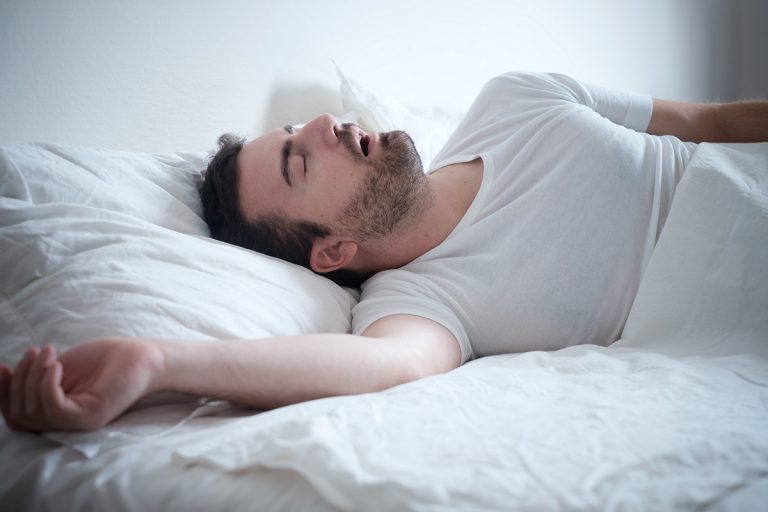Do you experience waking up in the middle of the night with a choking or gasping sensation? Does your partner complain about your loud snoring when you sleep? If yes, you may have a sleeping disorder called sleep apnea. It happens when your breathing stops and starts while you’re asleep.
Snoring During Sleep: Should You Be Worried?
Snoring is one symptom of sleep apnea. Although it normally occurs to some people, it can be a sign of serious health issues. It can be harmful if you experience certain symptoms, such as:
- Excessive daytime sleepiness or feeling exhausted upon waking up
- Weight gain
- Morning headaches
- High Blood pressure
- Not be able to concentrate or memory loss
- Waking up gasping for breath
These can also be signs of sleep apnea. Fortunately, there are ways to eliminate your snoring and improve the quality of your sleep. Orthodontics laboratories, for example, can create custom-designed oral appliances to prevent you from snoring.
A Serious Sleeping Disorder
Sleep apnea can be a serious health condition, especially if neglected. Since you experience breathing problems while sleeping, your brain and body may not get enough oxygen.
The three types of sleep apnea include:
- Obstructive sleep apnea (OSA) – this occurs when your throat muscles relax.
- Central sleep apnea (CSA) – your brain is unable to send correct signals to the muscles responsible for controlling your breathing.
- Complex sleep apnea syndrome – this happens when you experience both OSA and CSA.
The risk factors of sleep apnea vary, depending on what you have. For instance, excessive weight can increase your risk for OSP, the most common type of sleep apnea. Excess fat around your airway can obstruct your breathing while you’re asleep.
Smoking can also increase your risk for sleep apnea. This habit can cause higher inflammation and fluid retention in your upper airway.
Men are more likely than women to have sleep apnea. It’s common in older adults, as well.
Improving the Way You Sleep

When you start to experience the symptoms of sleep apnea, consult your primary physician. Otherwise, this sleeping disorder could lead to health problems, such as
- Daytime fatigue
- High blood pressure
- Type 2 diabetes
- Metabolic syndrome
- Liver problems
According to the American Sleep Apnea Association (ASAA), various treatments are available to improve sleep disorder, and these include:
- Positive airway pressure devices – a common type of treatment for mild to severe cases of sleep apnea. The device increases air pressure to prevent your airway from collapsing.
- Oral appliances – they hold your lower jaw to keep your airway open and prevent the tongue and muscles of the upper airway from blocking your airway.
- Upper airway stimulation therapy – this is ideal for people who have OSA who can’t use continuous positive airway pressure (CPAP) therapy. The therapy works in your body and with your natural breathing process.
- Weight loss – since being overweight is a symptom of sleep apnea, one way to improve your condition is to lose excess weight.
- Nasal decongestant – this is more effective for snoring or mild sleep apnea. You can try positional therapy to reduce or eliminate snoring or sleep apnea.
- Surgery – it helps both adults and children who have this type of sleeping problem. Your doctor has to identify which part of the upper airway obstructs your airflow.
When you have been diagnosed with sleep apnea, consider getting treatments right away. Improving your sleep quality not only gives you more energy for the next day, but you also allow your partner to have a good night’s rest.

